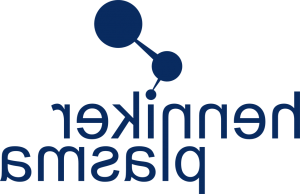
Artificial intelligence (AI) and machine learning technology are no longer mere buzz words; organisations are keen on aligning their initiatives to meet industry guidelines and recommendations. 随着我们不断突破人工智能的极限, governing bodies must create a framework for organisations to consider the ethical implications not as policy, 而是作为对受其影响的人的道德义务.

负责任的方法
人工智能正在彻底改变企业,简化运营,降低成本. 然而,在大量机会的同时,也存在风险. 负责任的创新的关键在于仔细平衡道德与进步.
The rapid advances in machine learning (ML) and artificial intelligence (AI) has given rise to a host of ethical concerns. 例如: 基于文本的生成人工智能工具中的性别偏见 伊泽贝尔·戴利的研究表明, 数据科学家和6point6展示了人工智能如何强化传统的性别角色, 面部识别技术, 如研究报告 性别阴影项目, 表现出偏见, 特别是在对不同群体的分析以及对社会的广泛影响方面. 人工智能驱动的招聘工具因歧视性结果而面临审查 招聘实践. Predictive policing systems have raised concerns about racial 偏见 and may have been based on inadequate or partial data allowing for the loop of 偏见 to be embedded in existing police practices. 此外, 自动驾驶汽车的伦理困境 已经被广泛讨论过.
深度造假技术的扩散, its use in crime and widespread AI surveillance and data privacy breaches have been the subject of extensive reporting and research over the past few years. 这些例子告诉我们什么? 他们证明,为了成功地整合人工智能, 组织不仅要遵守现有的法规, government guidance and cyber security principles but also ensure that responsible and ethical AI is at the heart of their innovations.
保护数据和人员
随着企业越来越多地转向人工智能, it is essential to highlight the data protection 风险s inherent in developing machine learning models. 这些模型通常需要访问大量的数据集, 经常包含敏感或个人信息的. These are subject to the stringent safeguards of GDPR and data protection laws and there may be a lack of understanding around 风险 management and legal 合规 when using personal data to develop AI systems.
Beyond protecting data, businesses must also consider the potential impact of employing AI on people. 欧盟委员会(European Commission)简洁地将这些担忧概括为人工智能的“不透明性”, 复杂性, 偏见, 一定程度的不可预测性和部分自主行为”. 结果是, 企业必须探索将可解释性纳入模型的方法, 消除偏见和歧视的风险, 并实施保障措施,以减轻意外结果的后果. 为实现这一目标,应考虑以下概述的一些关键原则.
负责任AI的治理:关键原则
考虑到这些风险和道德问题, businesses should conscientiously explore the AI governance principles and recommendations outlined below. These approaches seek to strike a balance between the imperative to foster innovation and the ethical and legal responsibility to effectively manage 风险.
保障基本权利
人工智能和数据保护法 are intertwined because of the ethical concerns around the use of personal data and the potential for 偏见 in AI systems. 为了克服这些挑战, organisations using AI systems should consider implementing features (adhering to data protection legislation such as GDPR) like transparency, 同意, 以及应对自动化决策对个人的潜在影响. Techniques such as federated learning enables AI models to train on decentralised data without exposing any sensitive data and safeguarding data privacy.
负责任、安全、透明、高效的开发和运营
人工智能系统的设计必须能够提供便利 端到端的问责、安全、透明 和效率. 要做到这一点,应该由人类进行定期审查. In addition, the internal working of an AI system should be transparent towards its stakeholders. It should be able to justify the ethical permissibility and the public trustworthiness both of its outcome and of the processes behind its design and use. To ensure integrity and balance, human-in-the-loop features must be built into the system plan.
遵守现行法例
AI systems within an organisation should be evaluated in the context of current national and international laws. 此外,应审查任何新法律的适用性.
AI governance policy implementation is in its infancy in the UK and will continue to evolve as the technology takes an increasingly operational role in both public and private sector. 政府已在草案中阐明了一般原则 国家人工智能战略,而 在公共部门使用人工智能的指南,与…合作开发 阿兰图灵研究所,提出了确保人工智能的道德和安全运营实施的方法.
此外,还有一些国际准则:
It is advisable to review organisational AI strategy in the context of the available national guidance and also refer to the international equivalents to capture as many different angles as possible. 这些指导方针可能会成为未来法律的基础.
促进协作和可持续创新
创新、可持续性和协作 are all related in their efforts to manage multiple dimensions of organisational policies and practices. 特别是, 必须指出,可持续创新植根于合作努力, 利益相关者整合, and incorporating external stakeholders’ preferences while shaping innovation practices is important. The impact of this collaboration to generate sustainable innovation can be analysed by using a 可持续创新矩阵(SIM) 领导模式.
前面的路是什么?
在前方的道路上航行, 企业必须通过承认排斥来承担责任, 在算法中嵌入公平性,并确保人工智能模型知道何时寻求人工输入. 成功安全地整合人工智能, organisations need a clear strategy that is aligned with existing and anticipated legislation, 高道德标准和强有力的安全原则. This strategy will of course need to evolve in response to the ever-changing AI governance landscape. Those who embrace this sustainable approach will find themselves well-prepared to harness the advantages of AI and reap its benefits.
6point6如何提供帮助?
At 6point6 we have an established approach to support our clients for incorporating AI in their business.
- 深入检讨业务,分析实施人工智能的需求
- Understanding the organisation’s goals and objectives and aligning them towards the requirements of AI
- Conducting an in-depth review of the pros and cons possible with these changes in the business. 特别是,分析将人工智能纳入业务的有效性
- 为技术变革准备员工能力
- 构建、集成和测试新系统
开始
In today’s world, AI can solve a range of issues and improve bottom lines in numerous industries. It can also improve the efficiency of a business by reducing the time and effort required to complete tasks and freeing up employees to focus on more complex and innovative aspects of the business.
If you are thinking of incorporating AI into your business then contact us to find out more about the proven 6point6 以负责任的方式纳入人工智能的方法.
Aditi拉马钱德兰

Aditi管理安全保证服务的交付, 提供治理, 风险, 合规, 为公共部门的客户提供信息保障. 我在网络安全领域工作了十多年, Aditi在信息风险管理和电子发现方面拥有丰富的经验, 凭借多年来在包括航空业在内的广泛领域工作所积累的专业知识, 能源, 保险, 金融服务, 和零售.








